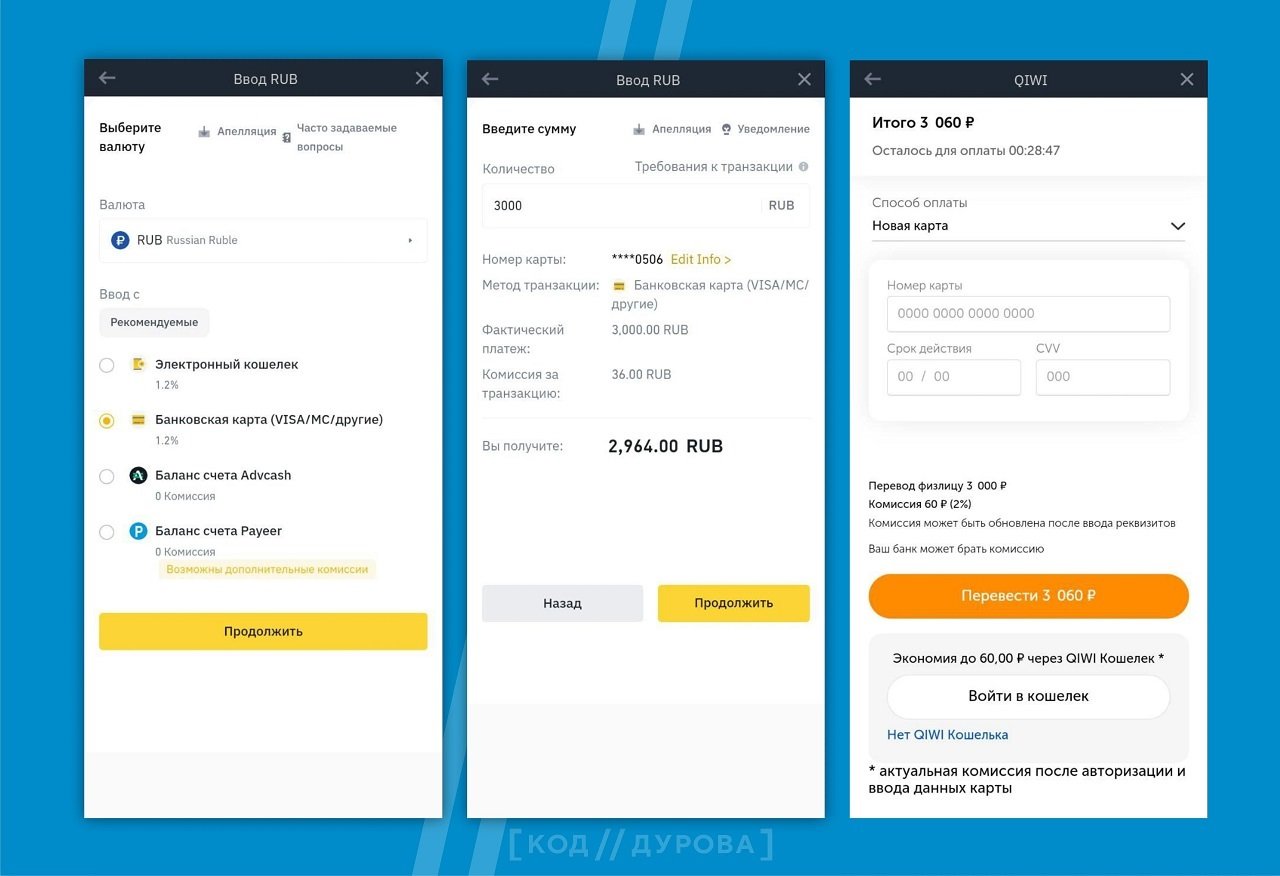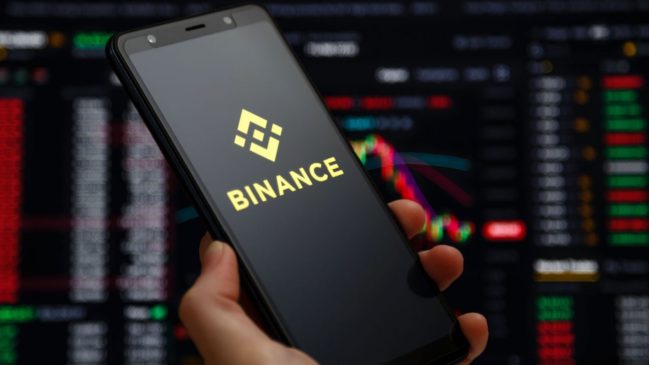The world’s largest crypto exchange, Binance, has lifted certain restrictions on Russian users, local crypto media unveiled. According to multiple reports, Russians can once again use their bank cards to make deposits and the trading platform has canceled a limit on their balances which was introduced in compliance with European sanctions.
Russian Cards, Including Visa and Mastercard, Used to Load Binance Accounts
Holders of Russian bank cards can now deposit money to Binance, the global leader among cryptocurrency exchanges. According to the Russian news outlet Kod Durova, deposits can be made not only with Russia’s own Mir cards but also with Visa and Mastercard issued by Russian banks.
The report shows that Binance accounts can be loaded through the Russian payment service Qiwi by selecting the ‘bank card’ option. Russian ruble, British pound, Turkish lira, and euro are among the available fiat currencies while the U.S. dollar is not supported.

In March 2022, Binance halted transactions with Russian-issued cards, soon after Moscow launched its full-scale invasion of Ukraine in late February. The restrictions were applied after Visa and Mastercard suspended operations in Russia as part of Western sanctions over the war.
“Conversion of rubles into cryptocurrency occurs without problems. For example, an order from rubles to USDT is made without commission,” Kod Durova wrote, noting that withdrawals to rubles are possible within limits varying between 4,300 and 200,000 rubles (close to $2,500).
€10,000 Limit for Russian Accounts Reportedly Lifted
Quoting Binance’s tech support, Russian crypto media reported last week that the exchange has also removed the €10,000 ($11,000) limit on Russian accounts. It was imposed in compliance with the EU’s fifth package of sanctions in April 2022.
In October, the European Union went even further, introducing a full ban on the provision of all wallet, account, or custody services for crypto assets to Russian persons and residents as part of the eighth package of penalties introduced by Brussels.
No official announcement has been made about the reported removal of the said limit but a Binance support agent confirmed its absence to RBC Crypto. Later the company pointed out that its EU-registered entities are prohibited from providing services to organizations established in Russia and Russian citizens and stated:
All current restrictions related to sanctions against Russian citizens are applied by the platform and its legal entities in the European Union in full.
According to Andrey Tugarin, a legal expert quoted by leading Russian crypto news outlet Bits.media, Binance may have transferred Russian users to an entity in a different jurisdiction as the EU restrictions would apply only to the European Union.
Bits.media quoted another message from the platform’s support regarding the card payments, according to which “The service is implemented in test mode and is not yet available to all users of the platform. However, most Binance users can already transact with the Qiwi Wallet.”
What are your thoughts on the reported removal of restrictions for Russian users of Binance? Share them in the comments section below.
Image Credits: Shutterstock, Pixabay, Wiki Commons, Iryna Budanova / Shutterstock.com
Disclaimer: This article is for informational purposes only. It is not a direct offer or solicitation of an offer to buy or sell, or a recommendation or endorsement of any products, services, or companies. Bitcoin.com does not provide investment, tax, legal, or accounting advice. Neither the company nor the author is responsible, directly or indirectly, for any damage or loss caused or alleged to be caused by or in connection with the use of or reliance on any content, goods or services mentioned in this article.



